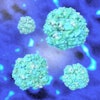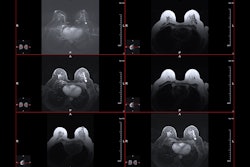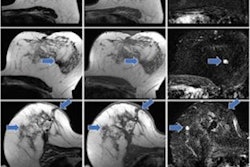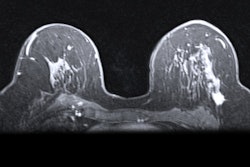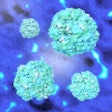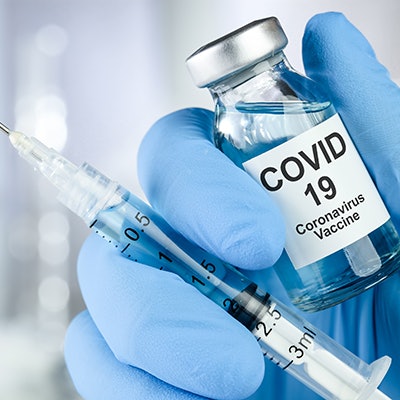
Breast MRI can detect axillary lymphadenopathy in a substantial number of patients who have received the COVID-19 vaccine booster, according to research published online March 16 in Academic Radiology.
A team led by Rooshi Parikh from Memorial Sloan Kettering Cancer Center in New York found that about one in five patients show increased lymph node cortical thickness on MRI after receiving the booster, "especially" within the first three weeks of receiving it.
"Additional evaluation or follow-up may be omitted in patients with low concern for malignancy," Parikh and colleagues wrote.
Axillary lymphadenopathy is a noted side effect of receiving the COVID-19 vaccination. However, its frequency after patients receive the vaccine booster is unknown. A recent ultrasound study found that lymphadenopathy after a COVID-19 vaccine booster dose has shorter average resolution time than after an initial vaccination.
Parikh and colleagues wanted to compare axillary lymph node morphology on breast MRI before and after booster vaccination. It looked at data from 128 patients who received the booster dose between October and December 2021.
The researchers found that 24 (19%) of the patients showed an increase in lymph node cortical thickness of greater than or equal to 0.2 cm. They also found that the median number of days between MRI and booster vaccine in patients with such an increase was nine days compared with 36 days in patients with an increase in cortical thickness of less than 0.2 cm (p < 0.001).
Additionally, age and the type of vaccine booster received were not tied to cortical thickening. The team additionally reported that no ipsilateral breast cancer or malignant lymphadenopathy were diagnosed on follow-up.
The study authors suggested that given the high frequency of lymphadenopathy following COVID-19 vaccination, further evaluation or follow-up may not be needed for patients without a suspicious breast finding. However, they added that follow-up, fine-needle aspiration, or core-needle biopsy may be considered in cases where lymphadenopathy persists several weeks after the booster dose.
The authors also suggested not delaying breast imaging exams due to the presence of lymphadenopathy.
"Delaying breast imaging studies may decrease breast cancer screening compliance with a potential negative impact on morbidity and mortality," they wrote.


